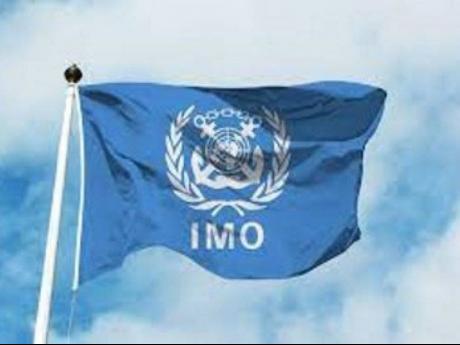US warns of sanctions against Caribbean countries that vote for IMO's net zero- shipping framework
WASHINGTON, CMC – The United States has issued a warning to countries, including those in the Caribbean, that plan to vote later this month in support of measures being pushed by the International Maritime Organization (IMO) for a Net-Zero Shipping Framework (NZF) aimed at reducing reducing emissions in the maritime sector.
“The United States will be moving to levy these remedies against nations that sponsor this European-led neocolonial export of global climate regulations. We will fight hard to protect our economic interests by imposing costs on countries if they support the NZF. Our fellow IMO members should be on notice,” according to a joint statement issued by the Secretary of State Rubio, Secretary of Energy Chris Wright, and Secretary of Transportation Sean P Duffy.
The measure, which was approved in April 2025, is set for adoption in October 2025, during the Marine Environmental Protection Committee that is meeting that takes place until October 17.
IMO officials say 108 members are eligible to vote, including 10 from CARICOM and, if adopted, it will come into effect in 2028.
But Washington has said that President Donald Trump has made it clear that the United States will not accept any international environmental agreement that unduly or unfairly burdens the United States or harms the interests of the American people.
It said that this week’s vote on the adoption “will be the first time that a UN organization levies a global carbon tax on the world.
“The Administration unequivocally rejects this proposal before the IMO and will not tolerate any action that increases costs for our citizens, energy providers, shipping companies and their customers, or tourists.
“The economic impacts from this measure could be disastrous, with some estimates forecasting global shipping costs increasing as much as 10 per cent or more. We ask you to join us in rejecting adoption of the NZF at the October meeting and to work together on our collective economic and energy security,” the joint statement said.
The NZF seeks to reduce greenhouse gas (GHG) emissions from international shipping to align with the 2050 net-zero target. Key components include a Global Fuel Standard (GFS) setting annual GHG intensity reduction targets, a two-tier carbon price mechanism, and a credit trading system funded by penalties to reward zero and near-zero emission fuels and support a just transition.
The NZF presents a new regulatory era in which ships will be required to gradually adopt fuels that are typically three to four times more expensive compared with conventional fossil fuels. Given the long lifespan of ships, shipowners should prepare now for the new net-zero GHG emission regulations to ensure cost-effective compliance, both at the ship and the fleet level.
The Framework will apply to all oceangoing ships over 5,000 gross tonnage (GT). These ships are responsible for over 85 per cent of global shipping emissions and are already covered by reporting requirements for fuel data collection. Ships under 5,000 GT are currently not covered.
Washington said that the NZF proposal poses significant risks to the global economy and subjects not just Americans, but all IMO member states “to an unsanctioned global tax regime that levies punitive and regressive financial penalties, which could be avoided.”
The United States says it is considering several actions against countries that support “this global carbon tax on American consumers”.
Among the measures being contemplated are pursuing investigations and considering potential regulations to combat anti-competitive practices from certain flagged countries and potential blocking of vessels registered in those countries from US ports; imposing visa restrictions including an increase in fees and processing, mandatory re-interview requirements and/or revisions of quotas for C-1/D maritime crew member visas.
In addition, Washington said it will impose commercial penalties stemming from US government contracts including new commercial ships, liquefied natural gas terminals and infrastructure, and/or other financial penalties on ships flagged under nations in favour of the NZF;
It will also be imposing additional port fees on ships owned, operated, or flagged by countries supporting the framework as well as evaluating sanctions on officials sponsoring activist-driven climate policies that would burden American consumers, among other measures under consideration.
Follow The Gleaner on X and Instagram @JamaicaGleaner and on Facebook @GleanerJamaica. Send us a message on WhatsApp at 1-876-499-0169 or email us at onlinefeedback@gleanerjm.com or editors@gleanerjm.com.

